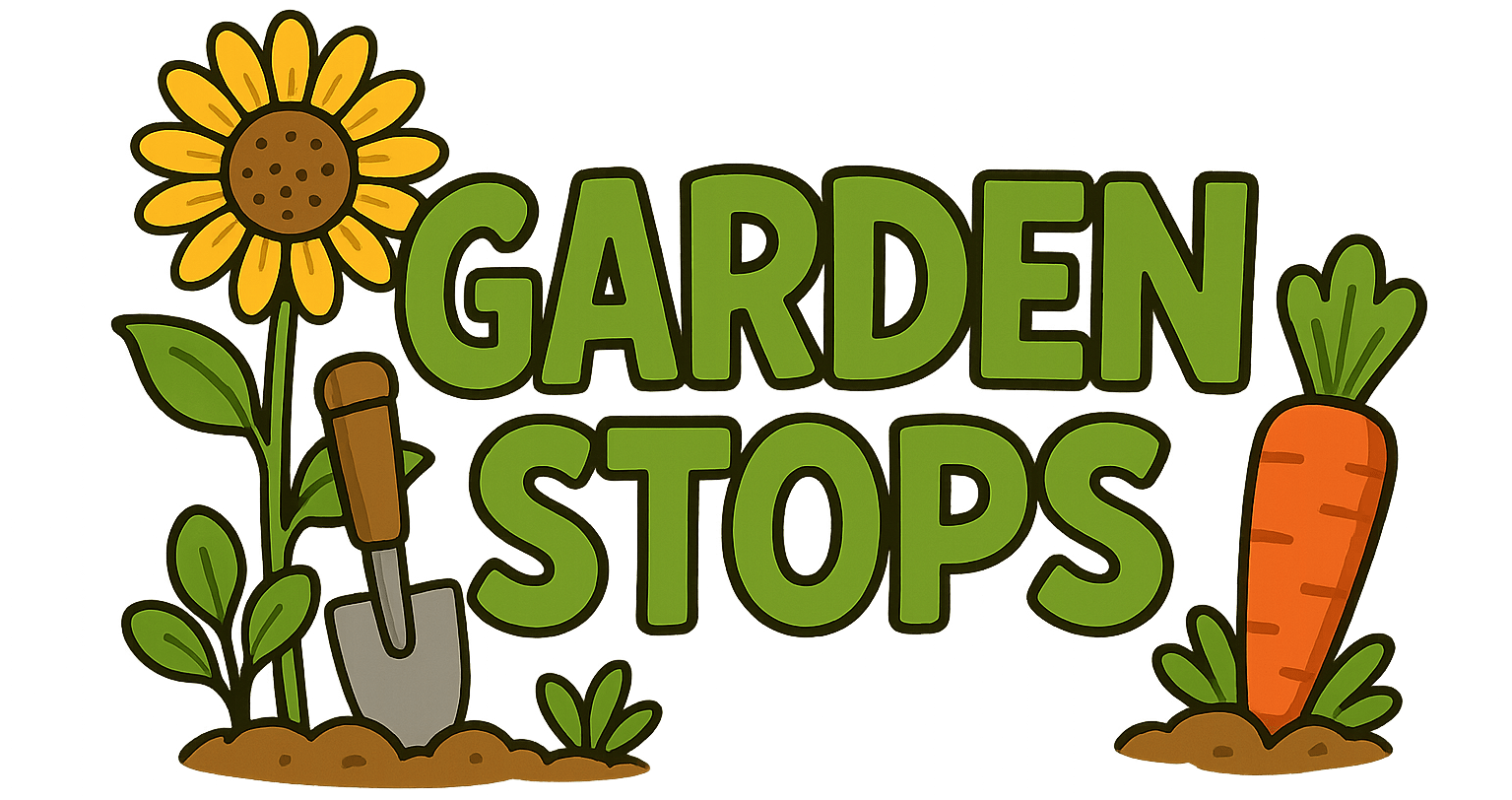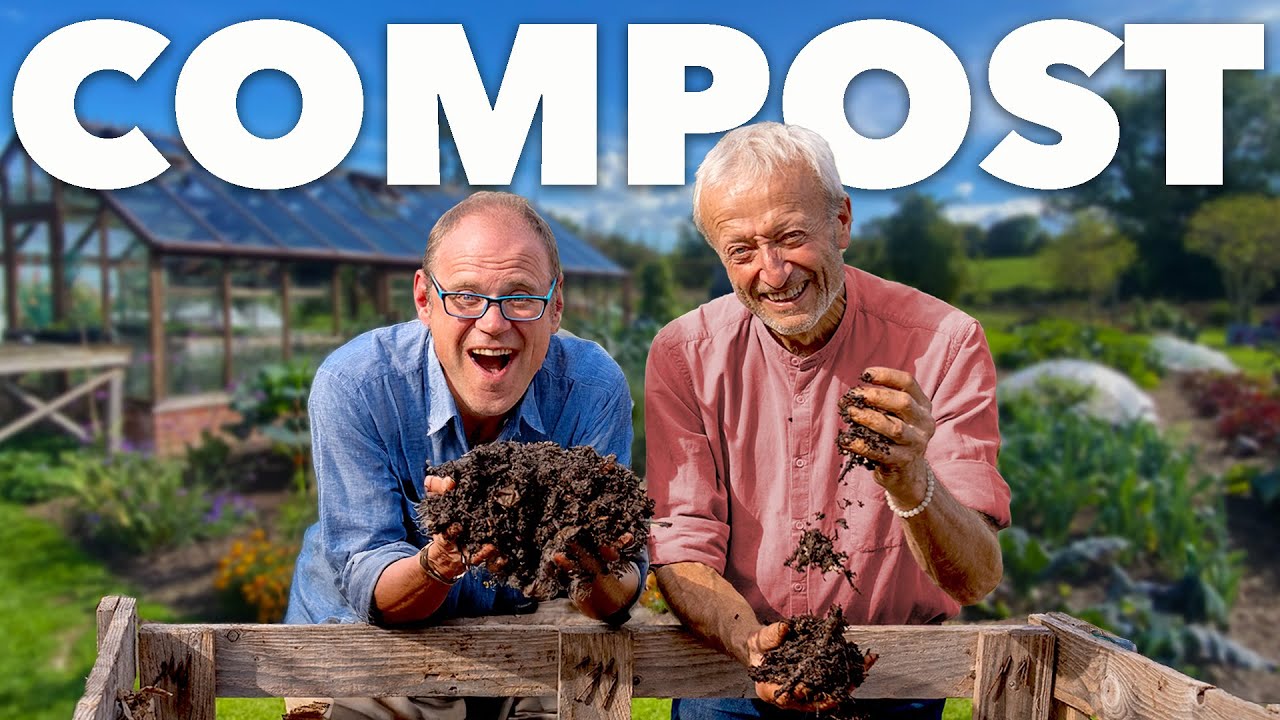Welcome to The Ultimate Composting Masterclass with Charles Dowding! If you’re ready to turn your garden waste into rich, nourishing compost and improve your gardening skills, you’re in the right place. This comprehensive guide will teach you everything you need to know to master composting and create healthier, more vibrant plants. Let’s dive in and unlock the secrets to successful composting together!
The Ultimate Composting Masterclass with Charles Dowding
Introduction
Imagine a lush garden bursting with color, vitality, and an intoxicating aroma of earth and growth—that’s the magic of compost. It’s not just dirt; it’s the secret ingredient, the fairy dust that turns your humble vegetable patch into a smorgasbord of green abundance. And who better to guide us through this riotous, enriching world than Charles Dowding, the sage of soil and the pioneer of no-dig gardening? His insights, gleaned from decades of cultivating beneath the surface, are a treasure trove for aspiring gardeners eager to learn the art of composting.
Today’s journey isn’t merely about making compost; it’s an exploration of the very heart of healthy gardening. You’ll discover how composting techniques—wormeries, compost toilets, and traditional piles—transcend mere practicality to become a philosophy of sustainability. So, whether you have a sprawling backyard or a modest balcony, buckle up—because mastering compost with Charles Dowding is like unlocking a secret code for a thriving, eco-friendly garden.
And best of all? You can try the Garden Planner for free, with no obligation, to bring your garden dreams to life. Access your free trial at the GrowVeg link, and start visualizing your composting and gardening future today. Ready to dig deeper? Let’s unearth the wisdom Charles has meticulously cultivated over the years.
Unlocking the Secrets of Compost: Why It Matters
Apart from the satisfying crunch underfoot, compost is the backbone of any flourishing garden. Its importance cannot be overstated: rich, well-made compost feeds your plants, improves soil structure, and releases nutrients slowly and steadily—nature’s slow-release fertilizer, if you will. Charles Dowding emphasizes that understanding how to produce and utilize this dark, crumbly miracle isn’t just a passing gardening fad but a fundamental life skill, especially in a world increasingly desperate for sustainable solutions.
The journey begins with recognizing the power of organic matter—kitchen scraps, garden waste, and even that bag of coffee grounds. Charles’s approach demystifies composting, stripping away the myth that it’s complicated or labor-intensive. Using techniques championed by Dowding—like no-dig methods—makes it easier to foster micro-organisms that break down material into nutrient-rich humus. This isn’t just garden lore; it’s science, art, and a little bit of alchemy rolled into one. The payoff is a garden that practically heals itself, with fewer pests, stronger plants, and soil so alive you can hear it humming.
In fact, deeply understanding composting transforms your entire gardening experience. It’s akin to learning the language of the soil—what it craves, what it resents, and how to communicate with nature without a translator. And there’s an added bonus: you can watch YouTube videos for detailed garden tours and tips, gleaning inspiration from Charles’ own plots. Whether you’re trying the free abridged version of Ben’s book for gardening tips or exploring composting techniques, you’ll find that the key lies beneath your feet—waiting to be unlocked.
Mastering Composting Techniques with Charles Dowding
Venturing into composting isn’t a one-size-fits-all affair; it’s an adventure in experimentation and adaptation. Charles Dowding offers a rich menu of techniques—wormeries, compost toilets, layered compost heaps, and low-effort methods—that cater to every gardener’s unique setting. His famous no-dig gardening philosophy underscores that minimal disturbance to soil life can yield maximized results. Imagine skipping the back-breaking turning of compost piles and instead letting microbes do the heavy lifting, all while nurturing a healthier garden ecosystem.
The wormery, for example, might seem like a whimsical addition, but it’s actually a powerhouse of decomposition. Worms, those graceful little denizens of the soil, gobble up kitchen scraps and produce nutrient-dense castings. Using a wormery reduces waste and turns your composting into a lively, almost magical process. Meanwhile, compost toilets—an often-overlooked resource—are a game changer for sustainable gardening and water conservation. They might sound unconventional, but they’re an excellent way to close the nutrient loop, keeping waste out of waterways and turning it into garden gold.
Charles’ expertise extends beyond just the how-to; he’s the Gandalf of compost mastery, reminding us that understanding the nuances—like balancing nitrogen and carbon or the importance of aeration—can dramatically improve your results. Practical advice, gleaned from decades of experience, helps you troubleshoot common problems like foul odors or slow decomposition. As you upgrade your composting methods, you’ll realize that feeding your garden with this rich, well-made compost is akin to feeding your soul—sustainable, nourishing, and utterly essential.
Creating an Eco-Friendly, Low-Impact Composting Routine
In today’s eco-conscious age, the idea of sustainability isn’t just trendy; it’s imperative. Charles Dowding champions low-effort, high-impact composting techniques that fit seamlessly into a busy, modern lifestyle. Imagine transforming your kitchen scraps into garden gold without adding extra work—because, frankly, who needs another chore? The beauty lies in simplicity: layering compost materials, choosing the right containers, and letting nature do its thing.
One of the most attractive aspects of Dowding’s methods is how accessible they are. You don’t need a sprawling backyard to start composting; even balcony gardeners can create tiny wormeries or use compost bins designed for small spaces. He encourages experimenting with different techniques, like compost tumblers for quick results or composting toilets if you want to turn waste into nourishment in a completely eco-friendly manner. It’s about working smarter, not harder—using what you have, optimizing every resource, and embracing the slow but steady process of natural decomposition.
And let’s not forget the fun factor—watching the process unfold on your garden tour videos or browsing free resources online could turn composting from a duty into a delightful daily ritual. Charles Dowding reminds us that sustainable gardening is not only about yield but also about respecting the planet. Upgrading your composting routine can be almost addictive, transforming your garden into a self-sustaining harmony of life, death, and rebirth. With simple steps, rich compost, and a bit of patience, you’ll be surprised how vibrant your garden can become.
Frequently Asked Questions
Q1: How can I start composting if I have limited space or a small balcony?
Even in tight quarters, composting is possible and rewarding. Small wormeries or countertop compost bins are perfect for apartment dwellers; they contain kitchen scraps in a manageable container that produces nutrient-rich castings. Dowding’s approach emphasizes layering and aeration, making even narrow spaces productive. Plus, watching a wormery flourish offers an unexpectedly delightful glimpse into the underground world of composting. The key is choosing the right container—compact, odor-free, and easy to maintain—and feeding your worms regularly.
Q2: What makes compost truly “perfect,” and how can I tell if I’ve achieved it?
The hallmark of perfect compost is its crumbly, earthy smell, dark color, and texture—almost like chocolate cake for the soil! It should be free of foul odors or visible weeds and should feel moist but not soggy. Charles Dowding stresses consistency and patience: turning or aerating your compost occasionally speeds up the process and improves quality. The presence of lively microbes, the absence of pests, and the abundance of beneficial insects working in harmony are signs you’ve created a thriving compost that will turbocharge your garden.
Q3: Are there specific composting techniques that are better for veggie gardening?
Absolutely. For vegetable gardens, techniques like layering green waste (kitchen scraps, grass clippings) with brown waste (dry leaves, cardboard) create a balanced environment for rapid decomposition. Dowding’s no-dig method emphasizes applying compost directly onto beds, reducing soil disturbance and preserving microbial life. Wormeries also excel in veggie plots since the worm castings are incredibly nutrient-dense, resulting in tastier, healthier produce. Remember, patience and consistency are your allies—good compost doesn’t happen overnight.
Q4: How does composting contribute to sustainable gardening and environmental health?
Composting reduces waste sent to landfills, cutting back on methane emissions—one of the planet’s potent greenhouse gases. Replacing synthetic fertilizers with homemade compost minimizes chemical runoff, protecting waterways and wildlife. Charles Dowding champions these practices by framing composting as a low-effort, high-reward act of ecological kindness. It’s about mimicking nature’s work—closing the nutrient loop, restoring soil vitality, and diminishing our carbon footprint—all while enjoying the gratifying process of nurturing life beneath the surface.
Q5: What are some common mistakes to avoid when composting, and how can I troubleshoot them?
Overloading the compost bin with too much green waste can lead to foul odors; balance is key. Not enough aeration results in anaerobic conditions, causing foul smells and slow decomposition. Charles Dowding suggests turning your compost regularly (or not at all, if you follow his no-dig principles), and maintaining a proper green-to-brown ratio—roughly 1:3. If your compost is gassy or slimy, add dry materials or straw to absorb excess moisture. Patience, observation, and a little bit of humility are your best tools in troubleshooting.
Final Thoughts
The journey of composting, especially as championed by Charles Dowding, is less about tedious chores and more about reconnecting with the fundamental rhythm of life. It’s an act of humble reverence—turning waste into wealth, decay into growth, death into rebirth. As you cultivate this skill, you’re not merely feeding your plants; you’re nurturing a deeper understanding of harmony and sustainability that blooms beneath your fingertips.
In the end, mastering compost isn’t about perfection; it’s about persistence and curiosity. It’s about embracing the messy, glorious process that turns scraps into soil, leaves into life, and tiny creatures into your partners in the lush, resilient garden of your dreams. As Dowding would surely say, every handful of compost is a testament to patience, care, and the quiet miracle of transformation—an ode to the soil, and to ourselves, as stewards of the earth.
Frequently Asked Questions
(Answers as provided above)
Final Thoughts
Embarking on your composting journey with Charles Dowding’s masterclass isn’t merely a gardening tip—it’s an awakening to the symbiosis of life and decay. Rich compost is the silent, nourishing force behind every thriving garden, a living testament to nature’s cycle of renewal. With patience, practice, and a little wit, you’ll soon discover that the secret to a vibrant vegetable patch is not just about planting seeds but about understanding the dark, crumbly magic beneath your feet. So, take the plunge—start composting, watch your garden transform, and revel in the simple, profound power of turning waste into wonder.

